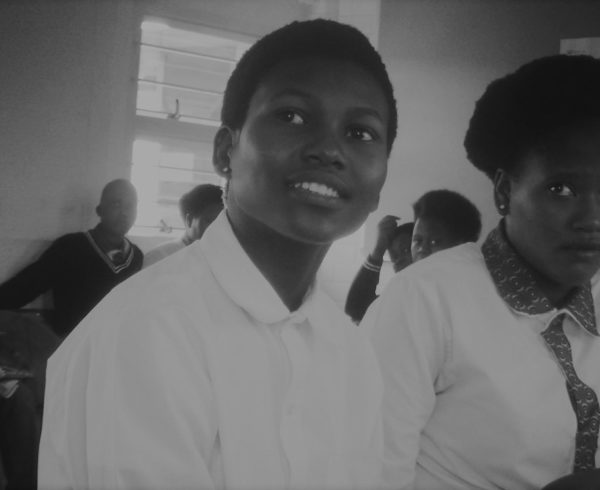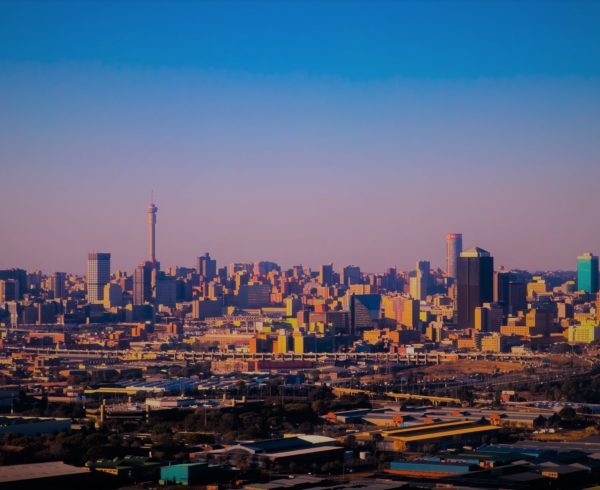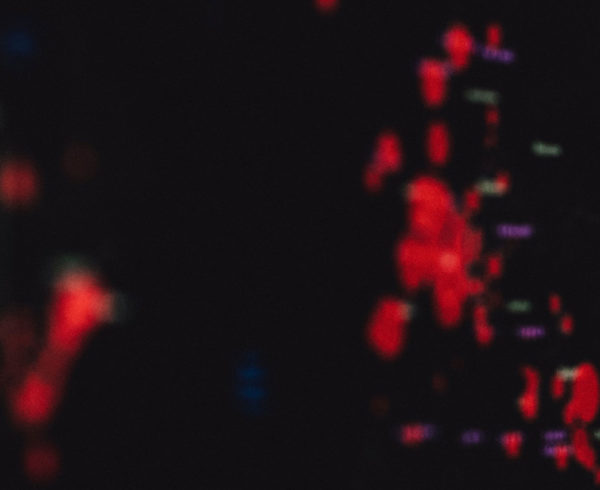The Bulungula Incubator (BI) has been operating in the Xhora Mouth Administrative Area in the Eastern Cape since 2007, with their work having already begun in 2004 through the Bulungula Lodge.
As South Africa gets to grips with COVID-19, Rejane Woodroffe, director of the BI, spoke to Letsema about the challenges facing rural areas in these uncertain times. She elaborates on how their communities have banded together to fight the disease, the part the BI and the Bulungula Lodge are playing, the work they do and what they need to continue their good work.
The conversation has been lightly edited for clarity and length.
Letsema: The BI serves several communities in the Xhora Mouth Administrative Area, among the poorest in South Africa. How have these communities reacted to the nation-wide lockdown?
Rejane: Our community has been really good in putting pressure on each other to comply. It was a bit slow to start with, people staying indoors, but they are now. On the Friday after the announcement, there were still a few young guys sitting outside socialising but by Sunday, the message began getting through. It was being spoken about a lot and people were becoming upset due to those not complying.
A driver of that is the nervousness about the elderly, which is especially concerning. That, and you just don’t want to get sick here. For anyone to get to hospital, it is an hour’s drive at minimum, if you have a 4×4 vehicle, and a days’ mission walking and using local bakkie taxis if not – getting needed help is hard. That’s why we’ve aimed to get as much verified information out there as possible.

For example, letting people know that money can be a vector of the disease when you shop, cleaning the plastic bags that you put your groceries in with bleach when you get home, and being aware that you need to do more than just washing your hands. What do you do if the primary water source is a communal tap? While it’s a point of frequent contact, it isn’t obvious that using it can be a problem. We made a series of videos covering these topics and trained spaza shop owners on how to avoid money and groceries in particular.
Have there been any incidents of COVID-19 or connected events, such as someone knowing a person whose become infected?
Considering where we are, what happened here occurred quite early on. On the Thursday before lockdown [March 26], we were really rushing around to set up our safe homes and the office was going nuts to get things done. On that day, the local hospital, Madwaleni Hospital, had a case that tested positive. The person had been to Italy, which is very unusual. People here aren’t often able to travel but she had got a job on a cruise liner.
That put people in a flat spin because that is our local hospital that serves the whole area. The positive case had also been in a taxi with another person who’d also begun displaying symptoms. The taxi passenger went to our next nearest hospital, Zithulele Hospital, with a test sent off to verify.
That escalated the seriousness of the situation. We haven’t heard of anymore bad news like that but who knows what the future holds. The doctors at the hospitals sent out WhatsApp messages, saying “Be aware that there is a case in your communities and in your hospital. Please take it seriously and stay at home”.
Combined with this, we have Bulungula Community Radio, which we launched in 2018. It has been absolutely critical in our messaging. I’m not sure how we would’ve gotten the message out there, at speed and at scale, otherwise. In the beginning, we even had prizes for questions about the virus, quizzes with prizes, to get our listeners, who are the people we serve, to talk about COVID-19 early on in different ways.
When cases were first reported in South Africa, it was people living in our largest cities who had travelled overseas, making your experience an outlier at the time.
When COVID-19 was first started here, to be frank, it felt like a rich, white person’s problem. People in the suburbs were more likely to know someone that had travelled but, in our case, people quickly realised the disease doesn’t discriminate based on income level. It affects everyone. The death of pastor John Hlangeni in Bloemfontein also made people realise that it does not discriminate between class and race.
You mentioned Bulungula Radio and WhatsApp as key planks in how your communities – spatially distant – are talking to one another about COVID-19 and what to do about it. Could you please elaborate?
We were quite lucky. Our Bulungula Commuity Radio was born quite a while ago. It was in 2018 when we had the idea to start it. We bought a small transmitter and we had programme manager on staff who was a natural talent, a born DJ with no training, Mzuzile Mhlola. He took to it, a fantastic DJ, and that began building it. It grew to the point migrant workers on the mines in Rustenburg were being sent recordings over WhatsApp by their families and friends here. It really started to create a buzz, excitement.
As Bulungula Community Radio became more widely known, an important factor in its success has been the lively WhatsApp group our DJs have kept building, even when we went off for a period.
WhatsApp? How so?
Between June 2018 and January this year, while dealing with the license process, Bulungula Community Radio was off air. While off air, the station’s WhatsApp group grew to be quite large and kept growing while we were shutdown. While not everyone has a smartphone, some feature phones support it or someone knows someone else who has a phone that supports WhatsApp. A lot of discussion and information occurs in the group.
When the COVID-19 virus came along, we’d been back on the air for two months and the WhatsApp group was and is huge. People start there, it goes viral and that’s why Bulungula Community Radio has been so important in our response. It built a community on radio and outside of it through WhatsApp. Today, we have a deepened connection with the communities who listen to us – not just those we assist – because the station’s reach is wide. Spaza shops and trading stores now advertise on it, generating a small income that helps maintain the service, which is helpful.
It’s been an amazing communication tool because it communicates about all of our work and projects. Youth participation has been incredible because the DJs are all volunteers, and some are really talented. A nerdy guy who might not have been popular before is now a “celebrity” DJ. It’s been the most impactful youth development project I’ve ever encountered and for the lowest financial input.

You noted that Bulungula set-up safe homes for the elderly. What support does Bulungula need so it can continue providing vital services to your communities for the short and long term?
The biq question facing us all now is: how long does this last? What we are going to need depends a lot on that. If we are lucky, with South Africa having locked down early and government doing a great job, it could be six weeks to two months, that’s the optimistic scenario. However, if you look at projections from Italy and other places, it makes for sober reading.
The biggest operation we set up was the safe homes, which requires funding for food, necessary goods, logistics and staff, plus our other projects. In the optimistic scenario – six weeks to two months – we need the costs of running those safe homes. If this all drags on much longer – two to three months and beyond – then we need funds for our future work.
It’s quite interesting. People have been responding to this emergency with help and funding, but all the work we do is an emergency: a child not getting a decent education is a daily emergency that we face constantly.
For those who aren’t aware, could you please explain what you mean regarding Bulungula’s work?
Sure. Kids aren’t getting a decent education. There is poor access to healthcare, means to produce an income and general access to opportunities. There are youth out of school who have no hope for anything in the future. Those are all emergencies. That is our ongoing work.
What I am worried about is that if this does turn into the long term, our current funders may begin struggling financially, forcing them to make difficult choices of where they send their resources, which are likely to become increasingly limited the longer the COVID-19 crisis goes on. That includes corporates who depend on profits, foundations, organisations that depend on endowment returns and individual donors who depend on their ongoing incomes and returns to savings and investment portfolios.
If the world gets worse, you will see the impact on the cities first and not what’s going on here, because we are so far way. This will make it harder for people to focus on the challenges poor, rural areas like ours face. If the situation deteriorates in townships, which are highly dense, the virus and the hardships that will bring will intensify there. Funds will rightly be directed to help those communities first and we might be at the end of the line for help and support. It is important to keep aware of what is happening here too.

Also, it’s not as if one side of the world has resources to help the other. The entire world is under pressure. There will be job losses everywhere. Life as we know it is going to change in the developing and developed world. Sadly, those in the remotest parts of the world, who have the least savings and resources, will suffer the most.
We depend on funding and fund raising. An NGO like ours will struggle to survive a knock like the one I’ve just described. We have 190 people on our staff payroll who will lose an important source of income if our funding dries up. If this does turn into the long term scenario, we’d need extra resources to support and adjust our current projects, like creating more remote learning facilities for the children in our care, since they don’t have the Internet at home nor can their parents’ home school them.
Beyond COVID-19’s health concerns, which are grave, other life-threatening conditions will not receive the attention they need, such as TB, HIV, hypertension, and diabetes, conditions that need constant monitoring and treatment. The local hospitals’ focus on COVID-19 means these other health conditions will not receive the necessary attention. These are the gaps we are doing our best to fill.
So, those are challenges on the funding side.
Help for other challenges? Well, it would be receiving help through people who have ideas and resources so they can provide services in this very different world we are going to be living in, post COVID-19. Doing that means access to networks, resources and putting in place more IT infrastructure so we are ready. Even thinking about healthcare in a different way. Laptops, phones, the type of equipment that allows us to further plug into the change that I believe society is undergoing.
Every little bit helps.
To find out more about Bulungula Incubator, visit https://bulungulaincubator.org/. If you wish to donate funds to help Rejane and her team aid their communities’ fight against COVID-19, visit https://bulungulaincubator.org/2020/03/23/coronavirus-response/
Images courtesy of Bulungula Incubator









